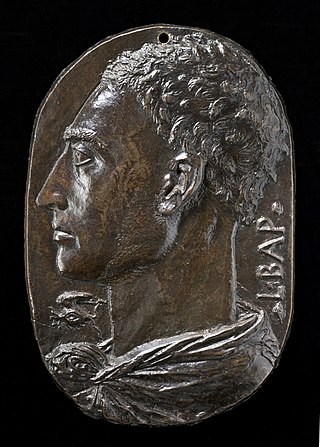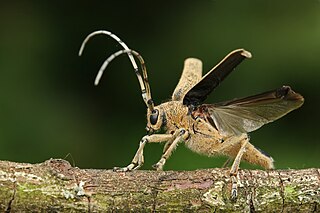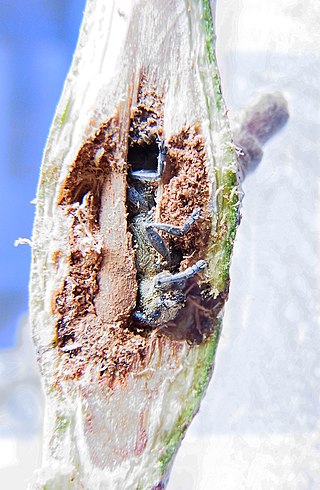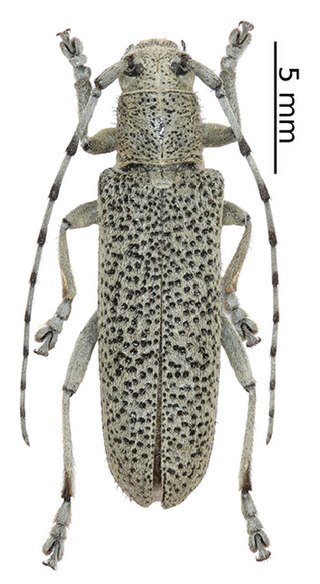
Leon Battista Alberti was an Italian Renaissance humanist author, artist, architect, poet, priest, linguist, philosopher, and cryptographer; he epitomised the nature of those identified now as polymaths. He is considered the founder of Western cryptography, a claim he shares with Johannes Trithemius.

Rafael Alberti Merello was a Spanish poet, a member of the Generation of '27. He is considered one of the greatest literary figures of the so-called Silver Age of Spanish Literature, and he won numerous prizes and awards. He died aged 96. After the Spanish Civil War, he went into exile because of his Marxist beliefs. On his return to Spain after the death of Franco, he was named Hijo Predilecto de Andalucía in 1983 and Doctor Honoris Causa by the Universidad de Cádiz in 1985.

Willy Albertina Verbrugge, known as Willeke Alberti, is a Dutch singer and actress, the daughter of entertainer and singer Willy Alberti (1926–1985) and Hendrika Geertruida Kuiper (1921–2011).

De re aedificatoria is a classic architectural treatise written by Leon Battista Alberti between 1443 and 1452. Although largely dependent on Vitruvius's De architectura, it was the first theoretical book on the subject written in the Italian Renaissance, and in 1485 it became the first printed book on architecture. It was followed in 1486 with the first printed edition of Vitruvius.

Alberti is a northern central partido of Buenos Aires Province, Argentina, at coordinates 35°02′S60°15′W

Manuel Maximiliano Alberti was an Argentine priest from Buenos Aires when the city was part of the Viceroyalty of the Río de la Plata. He had a curacy at Maldonado, Uruguay during the British invasions of the River Plate, and returned to Buenos Aires in time to take part in the May Revolution of 1810. He was chosen as one of the seven members of the Primera Junta, considered the first national government of Argentina. Alberti supported most of the proposals of Mariano Moreno and worked at the Gazeta de Buenos Ayres newspaper. Internal disputes among Junta members had a negative effect on Alberti's health, and he died of a heart attack in 1811.

Saperda carcharias is a species of longhorn beetle.

Saperda is a genus of flat-faced longhorn beetles belonging to the family Cerambycidae, subfamily Lamiinae. The genus was erected by Johan Christian Fabricius in 1775.

Saperdini is a tribe of longhorn beetles of the subfamily Lamiinae.

In the 1961 Virginia gubernatorial election, incumbent Governor J. Lindsay Almond, a Democrat, was unable to seek re-election due to term limits. H. Clyde Pearson was nominated by the Republican Party to run against former Democratic Attorney General of Virginia Albertis Harrison.
Saperda inornata is a species of beetle in the family Cerambycidae. It was described by Thomas Say in 1824. It is known from Canada and the United States. It feeds on Populus tremuloides.

Saperda candida, the roundheaded appletree borer, is a species of beetle in the family Cerambycidae. It was described by Johan Christian Fabricius in 1787. It is known from Canada and the United States. It contains the varietas Saperda candida var. bipunctata.
Saperda interrupta is a species of beetle in the family Cerambycidae. It was described by Gebler in 1825. It is known from China, Russia, Siberia, Korea and Japan. It is associated with coniferous plantations, and infests species of fir, pine, spruce and other conifers.
Saperda lateralis is a species of beetle in the family Cerambycidae. It was described by Johan Christian Fabricius in 1775. It is known from Canada and the United States.

Saperda perforata is a species of beetle in the family Cerambycidae. It was described by Pallas in 1773, originally under the genus Cerambyx. It has a wide distribution in Europe. It feeds on Populus nigra, Populus alba, and Populus tremula. It is preyed upon by the parasitoid wasp Xorides indicatorius.

Saperda populnea, the small poplar borer, is a species of beetle in the family Cerambycidae which forms woody galls on twigs of poplars and willows. It was described by Carl Linnaeus in 1758.

Saperda quercus is a species of beetle in the family Cerambycidae. It was described by Charpentier in 1825. It is known from Turkey, Romania, Bosnia and Herzegovina, Jordan, Serbia, Bulgaria, Greece, Syria, and possibly Hungary. It feeds on Quercus coccifera.

Saperda scalaris is a species of beetle in the family Cerambycidae. It was described by Carl Linnaeus in 1758, originally under the genus Cerambyx. It has a wide distribution in Europe and Asia. It is preyed upon by parasitoid wasp species including Xorides praecatorius and Helcon angustator.

Saperda similis is a species of beetle in the family Cerambycidae. It was described by Laicharting in 1784. It has a wide distribution in Europe. It feeds on Salix caprea. It contains the varietas Saperda similis var. albopubescens.

The elm borer is a species of beetle in the family Cerambycidae. It was described by Guillaume-Antoine Olivier in 1795. It is known from Canada and the United States. It feeds on Ulmus rubra and Ulmus americana. It acts as a vector for the fungus Ophiostoma ulmi, and as a host for the parasitoid wasp Cenocoelius saperdae.

















